Copyright 2015 by University Press of America, Inc.
4501 Forbes Boulevard
Suite 200
Lanham, Maryland 20706
UPA Acquisitions Department (301) 459-3366
Unit A, Whitacre Mews, 26-34 Stannary Street,
London SE11 4AB, United Kingdom
All rights reserved
Printed in the United States of America
British Library Cataloging in Publication Information Available
Library of Congress Control Number: 2013937437
ISBN: 978-0-7618-5952-9 (clothbound : alk. paper)
eISBN: 978-0-7618-5953-6
 The paper used in this publication meets the minimum requirements of American National Standard for Information SciencesPermanence of Paper for Printed Library Materials, ANSI Z39.48-1992
The paper used in this publication meets the minimum requirements of American National Standard for Information SciencesPermanence of Paper for Printed Library Materials, ANSI Z39.48-1992
Figure List
Figure X.1. Model of Business and Political Behavior
Table List
Table III.1. The Quest for Theory: Four Major Pespectives
Table VIII.1. Major Sources for E.U. Foreign Policy
Table VIII.2. The Political Structure of EU
Table X.1. Major Global Trade Variables
Table X.2. Selected Countries Repesenting Five Strata: Core to Periphery
Table XII.1. AIDS/Living and Dying with HIV
Table XII.2. HIV/AIDS World statistics for 2004
Table XIV.1. National Security Strategy Desirable Characteristics
Table XV.1. Global Dependency on African Hydrocarbons
Table XVI. GDP (Nominal) per Capita for Selected Countries
Foreword
Professor Sagini has uniquely and marvelously employed the disciplines of political economy, political science, history, international relations, religious studies and security studies to construct Globalization: The paradox of organizational behavior-terrorism, foreign policy and governance (2014).
First, to write this great work, professor Sagini used rich and rigorous inter-disciplinary scholarly analysis to historically and comparatively reflect on the origin, nature, character, and challenges of contemporary globalization. He also employed historical inference as examples to compare contemporary globalization with classical, medieval, and modern globalizations. The historical ap-proach revealed breath, understanding and wisdom prevalent in analyzing culturally different forms of globalization. The comparative approach provided us with intellectual insight and predictive normative criteria for estimating the strengths, weaknesses, and probable longevity of contemporary, paradoxical and exploitative globalization.
Second, professor Sagini went an extra mile to define the meaning and origin of domestic, transnational, and global terrorism by focusing on the cultural, economic, political and historical forces that produce and habituate it, the kind of foreign policy and historical texture that informs it, the ideologically oriented politicoeconomic culture that animates it, and the personal and legal ideas and interests that motivate its driving dynamics. The analysis on terrorism does not only tell us about cause and effect, but it also logically prescribes com-prehensive policy oriented global solutions and strategies for its containment.
Third, this book is not only unique in scope and thematic structure and texture, but its comparative analysis of the 21st century (U.S., EU and China led East Asia) provides insight on the challengers of Western security in a potential-ly powerful and Asianist dominated hegemonic multipolarity, within an increas-ingly declining U.S. Western unipolarity. The implications of this new notion for U.S. technological, administrative, and geostrategic interests are mind-boggling. This kind of challenge is not without historical parallels particularly in the realm of ancient imperial governance. In this struggle for global dominance and governance, which is the anarchical struggle for survival, those who read history well and do something for self edification particularly the control and management of the bottlenecks survive the potential side effects of the global and culturally based, geostrategically rationalized, political, economic, and mili-tary tsunami.
Dr. Thomas E. Patterson
Bradlee Professor of Government and the Press
JFK School of Government at Harvard University
Preface
Globalization: The paradox of organizational behavior Terrorism, foreign policy and governance(2014) has 16 chapters categorized into four sections. Section one has five chapters that address terrorism in the new millennium. Section two has four chapters that comparatively analyze the divergent foreign policies of the great powers of the 21st century. Section three consists of five chapters that highlight the effects of globalization. Finally, section four, which is the conclusion, is a deconstructive critique and newly proposed paradigm for charting new global directions.
Specifically, chapter one is an analysis of the five paradigms of globalization. Chapter two explains why the United States was attacked on 9/11/2001. Chapter three is about the seven-year war between the United States and Iraq. Chapter four is about the challenges of Iraq reconstruction. Chapter five concerns Western and Islamic interpretations of transnational terrorism. Chapters six, seven, eight, and nine compare and contrast the respective foreign policies of the U.S., China and the EU. Chapter ten discusses the role of NGOs in the global political economy. Chapter eleven describes the challenges of the new world order. Chapter twelve highlights the political economy of HIV/AIDs. Chapter thirteen is a synopsis on terrorism and its risks. Chapter fourteen concentrates on the effects of terrorism in the United States of America. Chapter fifteen analyzes the challenges of global energy security while chapter sixteen is a deconstructive critique that also serves as the new paradigm for the 21st century and beyond.
The thesis of this document asserts that globalization is a rationally constructed historical, materialistic and supranational movement whose economic, political, technological, cultural and social forces contribute to the diffusionist transformation of human civilization (world system). However, its organizational processes, structures and solutions could inherently be paradoxical and inimical to the needs of larger human interests. After the dominance of the 500 years history by Western civilization, the emergent, vibrant and assertive Asianist model of global regionalism seems to rival its Western counterpart with interesting and inconclusive implications. The New World Order seems to be more disorderly than the old one that ended at the close of the 20th century. Therefore, it is the purpose of this book to argue that while a bipolar or unipolar system of globalization was logically and teleologically possible in the past, the 21st century is more likely to be deglobalized by the evolving, intercontinental, triadic and competitive elements of Americentric, Eurocentric and Sinocentric regionalism. Asia, Europe and America will vigorously compete for global domination and governance. The 21st century will be shaped by the human values, visions and destiny yet to be known through a variety of possible and competing scenarios embedded in contemporary and global paradigmatic regionalism.
The book is about 400 pages long. Several simple tables have been used for illustrative clarity. Chapter one is an introductory part for the whole text. Each of the chapters 2 through 15 contains contents, conclusions and references. The last chapter, which is 16, is a referenced, deconstructive, comparative and conclusive paradigm for the new century. The detailed contents for each chapter are illustrative of the organizational structure, and morphology of the text. The book is comparable to


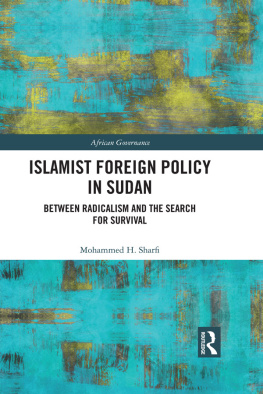
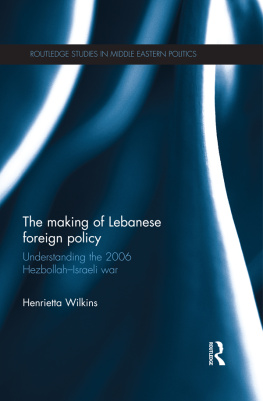


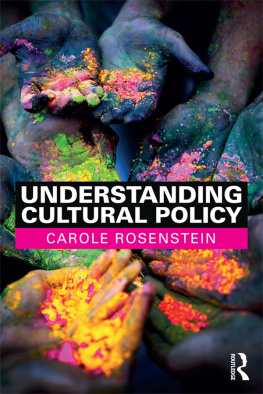
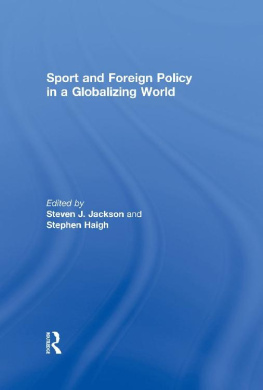
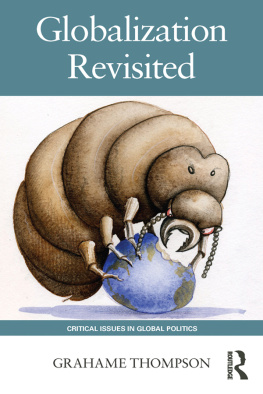
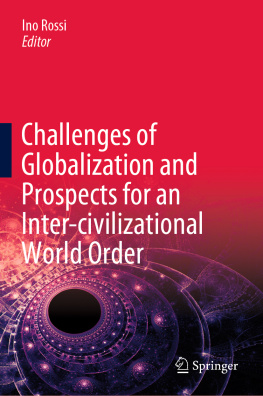
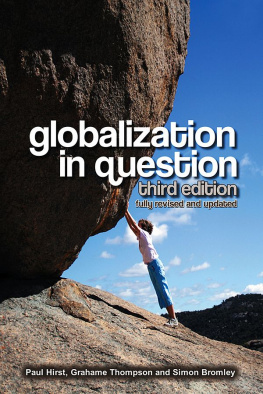

 The paper used in this publication meets the minimum requirements of American National Standard for Information SciencesPermanence of Paper for Printed Library Materials, ANSI Z39.48-1992
The paper used in this publication meets the minimum requirements of American National Standard for Information SciencesPermanence of Paper for Printed Library Materials, ANSI Z39.48-1992